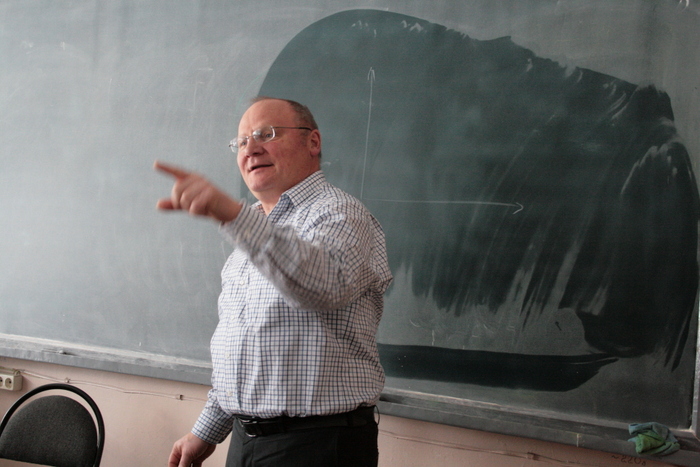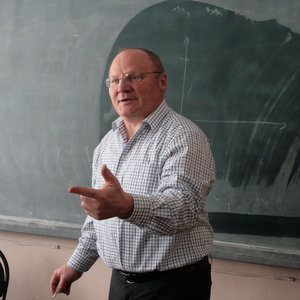Researchers from Carl von Ossietzky University of Oldenburg (Germany) become interested in a gas microchromatograph developed at Samara University Department of Chemistry. German chemists develop catalysts for the refining of oil into motor fuel in this university. According to Professor Frank Roessner, who heads the investigation, they will be able to make significant progress in the creation of heterogeneous catalysts by virtue of hybrid microfluidic technology developed at the Department of Chemistry.
“We are very interested in using of microchromatograph in my research on the catalysts creation. We need a hyperfast analysis with high sensitivity and reliability. With this device, we shall quickly obtain an assessment of a wide range of catalysts indicators before and after reaction, estimate the catalyst life cycle, achieve the yield increase of the target desired products,”- noted Professor Roessner during his recent visit to SSAU.
The catalysts, which are developed in the University of Oldenburg, designed to create new kinds of fuel and motor oils that meet increasingly stringent environmental standards. The mikrochromatograph, developed in Samara University under the direction of Professor Igor Platonov, is able to help the German chemists to quickly and accurately determine a gas composition of the mixture before and after the catalytic reaction.
“Our device is created on the basis of microfluidic systems, which analyse complex mixtures in chromatographic microchannels located on a plane. The analysis is performed in dynamic conditions”, - noticed Igor Platonov. According to him, up to date it is one of the most popular and requested analytical instruments.
The microchromatograph is able to complete these tasks quickly and efficiently. At the same time it has a variety of undoubted advantages. Thus, the device is very mobile and portable. It is smaller and lighter than a laptop and it can be used in the field environment. The wire-free communication allows performing a remote analysis and remote control of the instrument. The developers gained such characteristics by creation of unique chromatographic modules (dispensers, detectors and chromatographic microcolumns) formed on the plates plane of the various materials. “About seven SSAU departments participate in creation of the microchromatograph prototype”, - emphasized Igor Platonov.
It is estimated that analytical instrumentation as well as systems for testing organization for Oldenburg chemists will be created in Samara University within the framework of further cooperation of Russian and German scientists. The results of joint research are expected to be published in scientific publications and patented. The exchange between scientific staff of these two universities is also scheduled. “This project will allow us to develop interdisciplinary communication between analysts and technologists” - remarked Professor Roessner.
Professor Roessner also read a course of intramural lectures and consultations on coursework with the students of “Nanoengineering” faculty on the topic “Adsorption and Surface Phenomena” and “Hybrid Materials” during his visit to SSAU.



